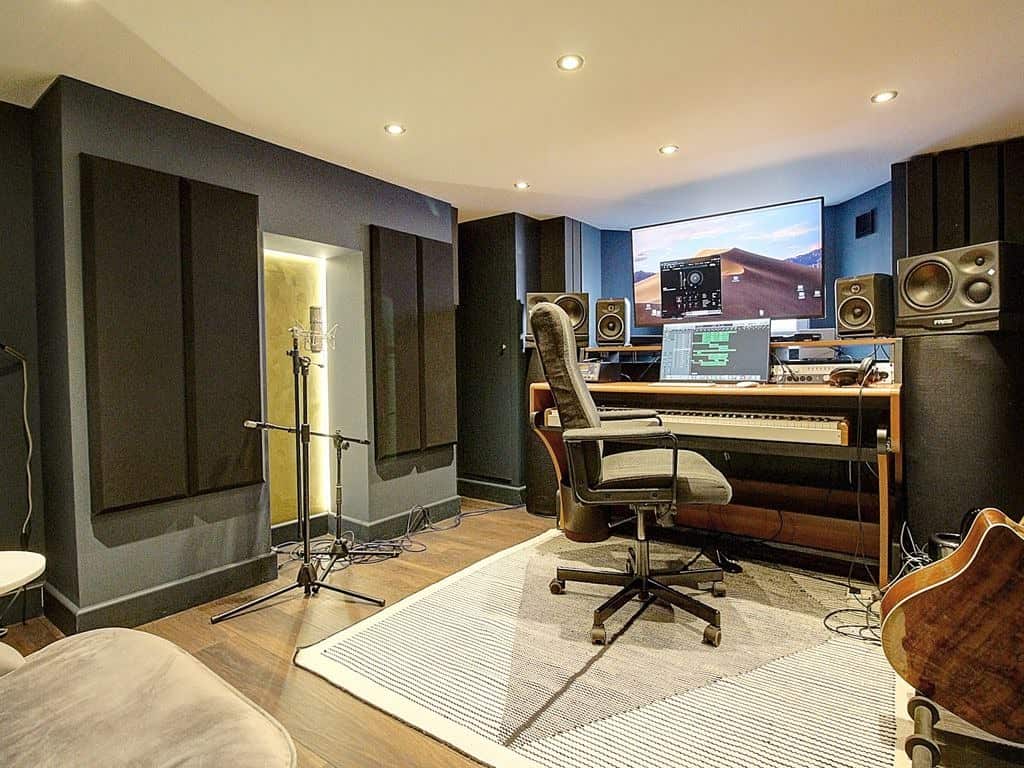
The Importance of Soundproofing in a Singing Room

Singing is a beloved pastime that brings joy and entertainment to people of all ages. Whether you’re a professional singer, an amateur enthusiast, or simply someone who loves belting out tunes in the shower, having a dedicated singing room can be a game-changer. However, without proper soundproofing, your melodious notes may become a nuisance to others, or worse, a source of noise complaints. That’s why understanding the importance of soundproofing in a singing room is crucial.
Preventing Noise Disturbance
One of the primary reasons for soundproofing a singing room is to prevent noise disturbance. Singing can produce high volumes of sound, especially when you’re practicing or enjoying a karaoke session with friends. Without proper soundproofing, this noise can easily travel through walls, floors, and ceilings, disturbing your neighbors or family members in adjoining rooms.
By implementing effective soundproofing measures, you can contain the sound within the designated singing room, ensuring that your vocal talents don’t become a source of annoyance for those around you. This not only promotes harmony with your neighbors but also allows you to sing without worrying about complaints or potential conflicts.
Enhancing Acoustics and Sound Quality
Another significant benefit of soundproofing a singing room is the improvement in acoustics and sound quality. When sound waves bounce off hard surfaces, they can create echoes, reverberation, and other undesirable effects that distort the clarity and richness of your voice.
Proper soundproofing techniques, such as installing acoustic panels or using sound-absorbing materials, can help control and manage the way sound behaves within the room. This results in a more pleasant listening experience for both you and any potential audience, allowing your voice to shine through without distortions or muddiness.
Increased Focus and Concentration
Singing requires a high level of focus and concentration, especially when practicing or recording. External noise can be a major distraction, causing you to lose your train of thought, miss your cues, or struggle to maintain pitch and rhythm.
By creating a soundproof environment, you’ll be able to minimize external noise interference, allowing you to fully immerse yourself in the act of singing. This heightened focus and concentration can lead to better performances, faster progress in your vocal training, and an overall more enjoyable singing experience.
Soundproofing Techniques
Insulation and Drywall
One of the most effective ways to soundproof a singing room is through the use of insulation and drywall. Insulation materials, such as fiberglass batts or mineral wool, can be installed between the studs in your walls, floors, and ceilings. This helps to absorb and dampen sound waves, preventing them from traveling through the structure.
Additionally, using specialized soundproof drywall or installing multiple layers of regular drywall can further enhance the sound isolation capabilities of your singing room.
Acoustic Panels and Bass Traps
Acoustic panels and bass traps are essential components of a well-soundproofed singing room. Acoustic panels are designed to absorb and diffuse sound waves, preventing them from reflecting off surfaces and creating unwanted echoes or reverberation.
Bass traps, on the other hand, are specifically designed to control low-frequency sound waves, which can be particularly challenging to manage in a small space. By strategically placing these specialized panels and traps, you can create an environment that’s optimized for singing, with a balanced and controlled acoustic environment.
Door and Window Sealing
Even the smallest gaps or cracks in doors and windows can compromise the soundproofing efforts in your singing room. To address this issue, it’s essential to seal these openings using specialized materials like weather stripping, door sweeps, and acoustic caulk.
Furthermore, consider installing solid core doors or double-paned windows to further enhance the sound isolation capabilities of your singing room. These measures will help ensure that sound doesn’t escape or enter through these potential weak points.
Conclusion:
Soundproofing a singing room is an investment that pays dividends in terms of improved acoustics, increased focus, and harmonious relationships with your neighbors. Whether you’re a professional singer, a karaoke enthusiast, or simply someone who loves to sing for their own enjoyment, creating a properly soundproofed environment can elevate your singing experience to new heights.
Remember, the key to successful soundproofing lies in a combination of insulation, acoustic panels, bass traps, and proper sealing of doors and windows. By taking the time and effort to implement these techniques, you’ll be able to sing your heart out without worrying about disturbing others or compromising the quality of your performance.
If you’re looking for a top-notch karaoke experience in a soundproofed environment, be sure to check out xn--939au0gowit2i9tq.kr, where you can sing to your heart’s content without any noise disturbances.
